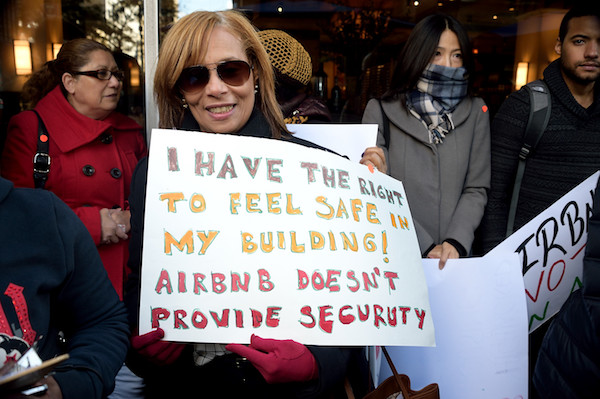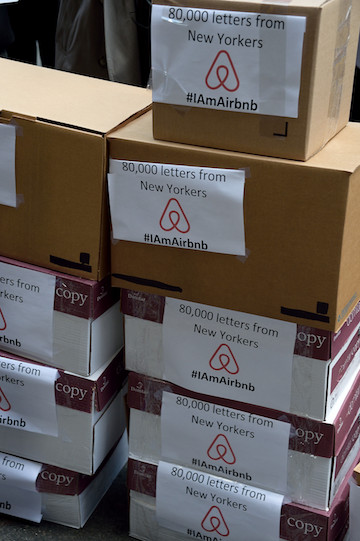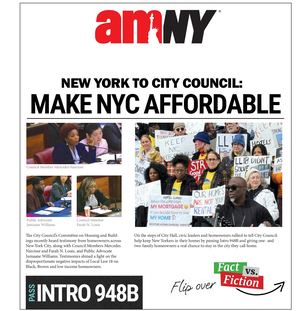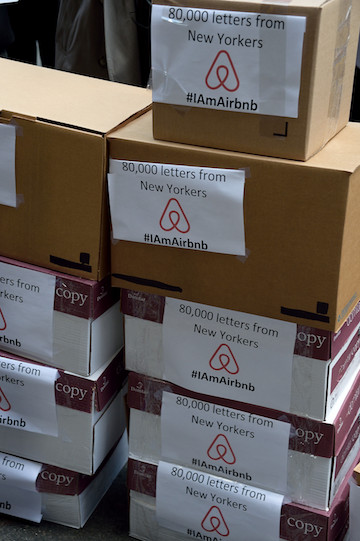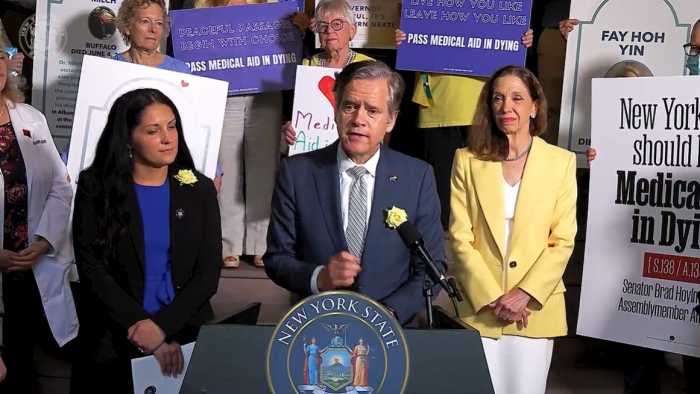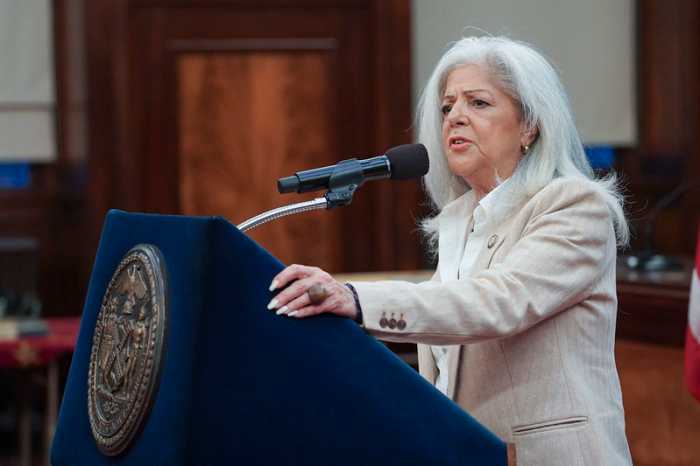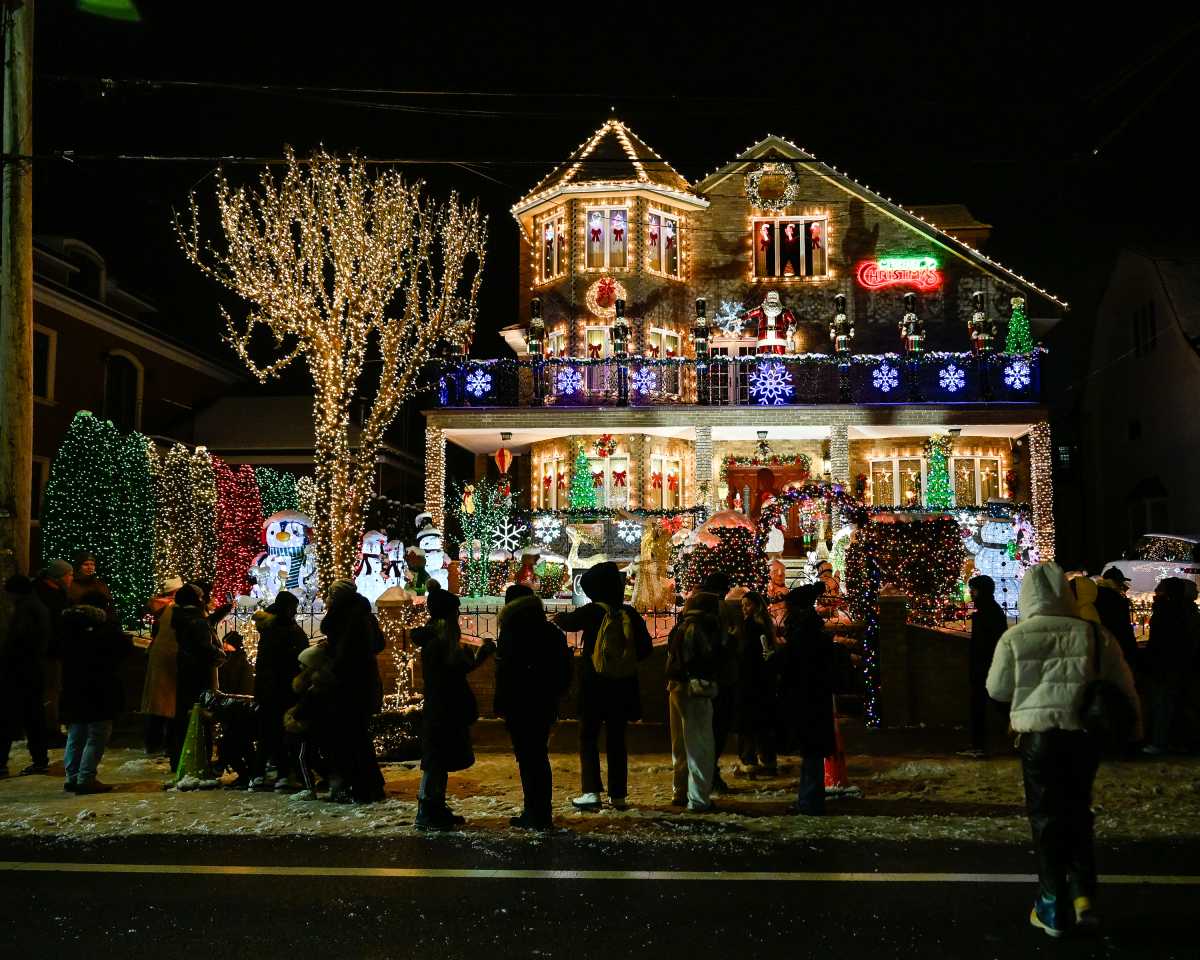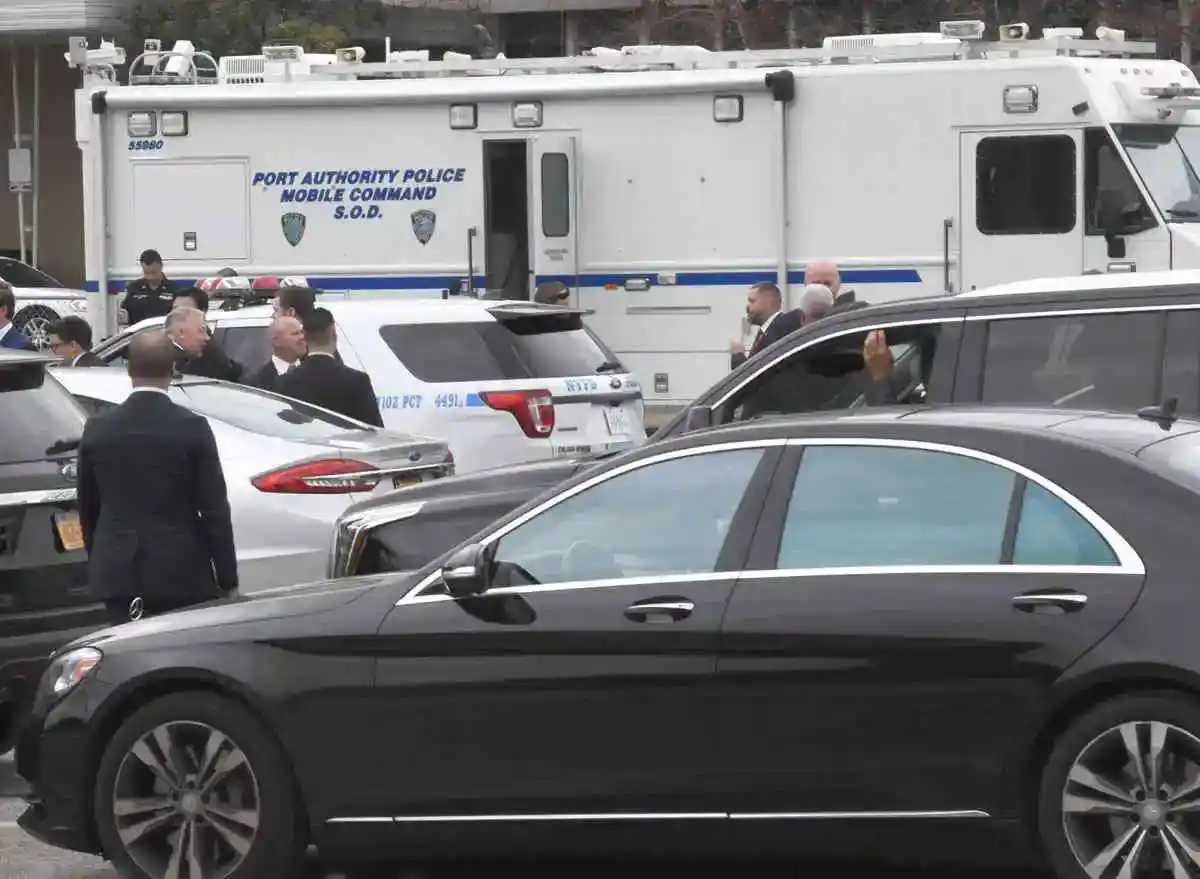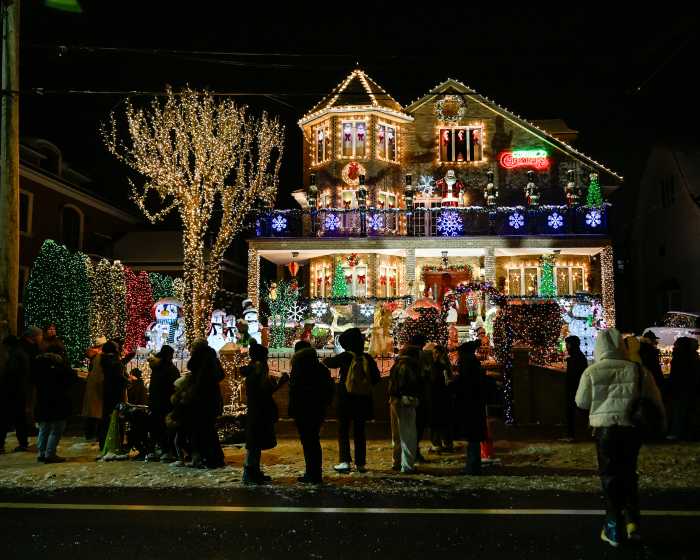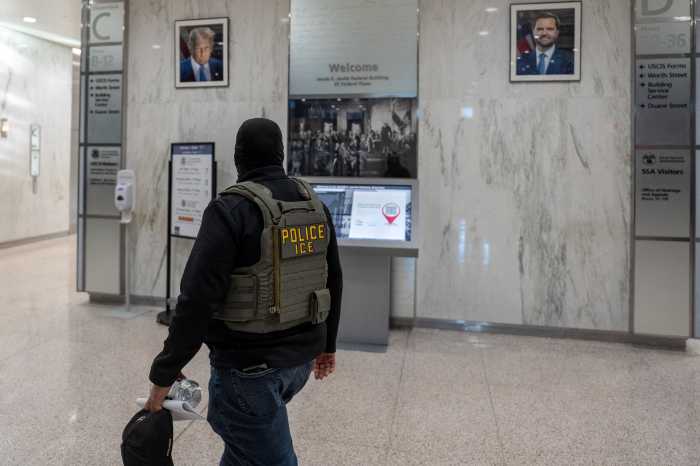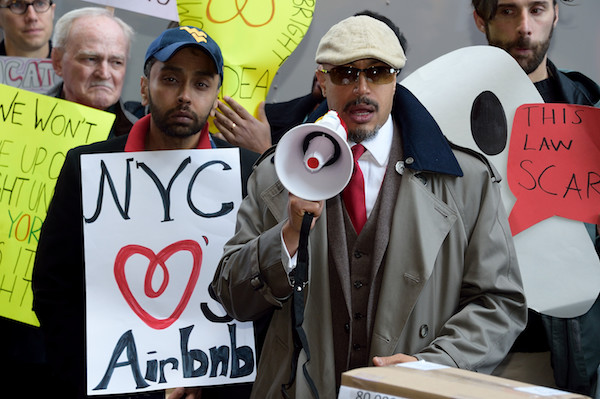
BY PAUL SCHINDLER | Governor Andrew Cuomo’s approval of legislation imposing fines on apartment dwellers or owners who advertise rental of residential units for short-term periods drew competing demonstrations from both sides of the issue outside his Third Avenue Office in Midtown on October 26.
“Airbnb is you and me. We’re not getting rich, we are getting by!,” chanted several dozen protesters who oppose the new state law, which levies increasing penalties of up to $7,500 for the third offense in advertising apartment units for periods of less than 30 days. Such rentals were already illegal under a 2010 law.
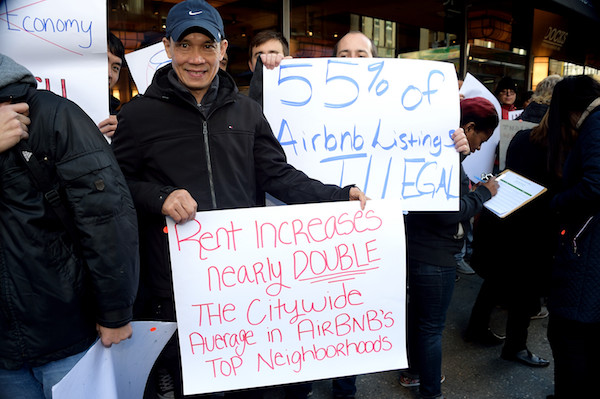
Some of those who turned out were apartment “hosts” who have earned extra income by renting out their homes via the home-sharing website. In the weeks prior to Cuomo announcing his decision on the legislation, Airbnb had waged an aggressive television ad campaign emphasizing the benefits of such hosting for everyday New Yorkers struggling to make ends meet.
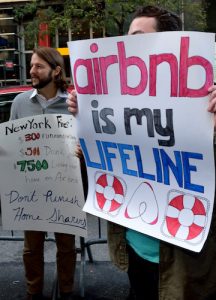
The day the governor signed the bill, Airbnb went to court charging that the new law infringed on First Amendment rights and was the product of “back-room dealing,” largely, it said, at the behest of the hotel industry. Speakers at the rally opposing the law stressed the idea that it represented a class war on Airbnb hosts who rely on the extra income renting out their homes provides.
The Reverend Kirsten John Foy, president of the Brooklyn chapter of the National Action Network, a civil rights group headed by the Reverend Al Sharpton, likened home-sharing hosts to those Southerners who opened up their homes to out-of-town demonstrators following the call of Dr. Martin Luther King, Jr., at the height of the 1960s Civil Rights Movement.
The crowd that turned out in support of Airbnb was considerably smaller than that predicted in a press release one day before the event, held on a chilly autumn morning. The group, however, did have on hand boxes containing what they said were messages of support for home-sharing from 80,000 New Yorkers.
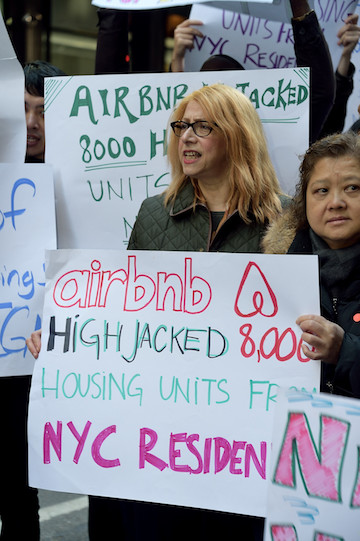
The Airbnb supporters were matched by a similarly sized crowd that praised Cuomo for signing the bill. That group was led by State Assemblymember Linda Rosenthal, the lead sponsor on the legislation, who said of the other side, “They are trying to obfuscate the issue. These tenants are here to thank Governor Cuomo. My bill makes it illegal to advertise, it was already illegal to rent.”
Rosenthal’s allies pointed to what they say is the negative impact of Airbnb rentals –– particularly by apartment building owners –– on the availability of affordable housing. A number of the signs they carried charged that rental increases are nearly double in neighborhoods where Airbnb rentals are common.
A letter to Cuomo from nine local host club leaders in Manhattan and Brooklyn requested a meeting with the governor so they could make their case about the benefits of home-sharing in their lives. With Cuomo’s signature on the measure coming a full four months after the Legislature initially approved it, however, the issue seems more likely to be resolved in the courtroom rather than in constituent meetings hosted by the governor.
